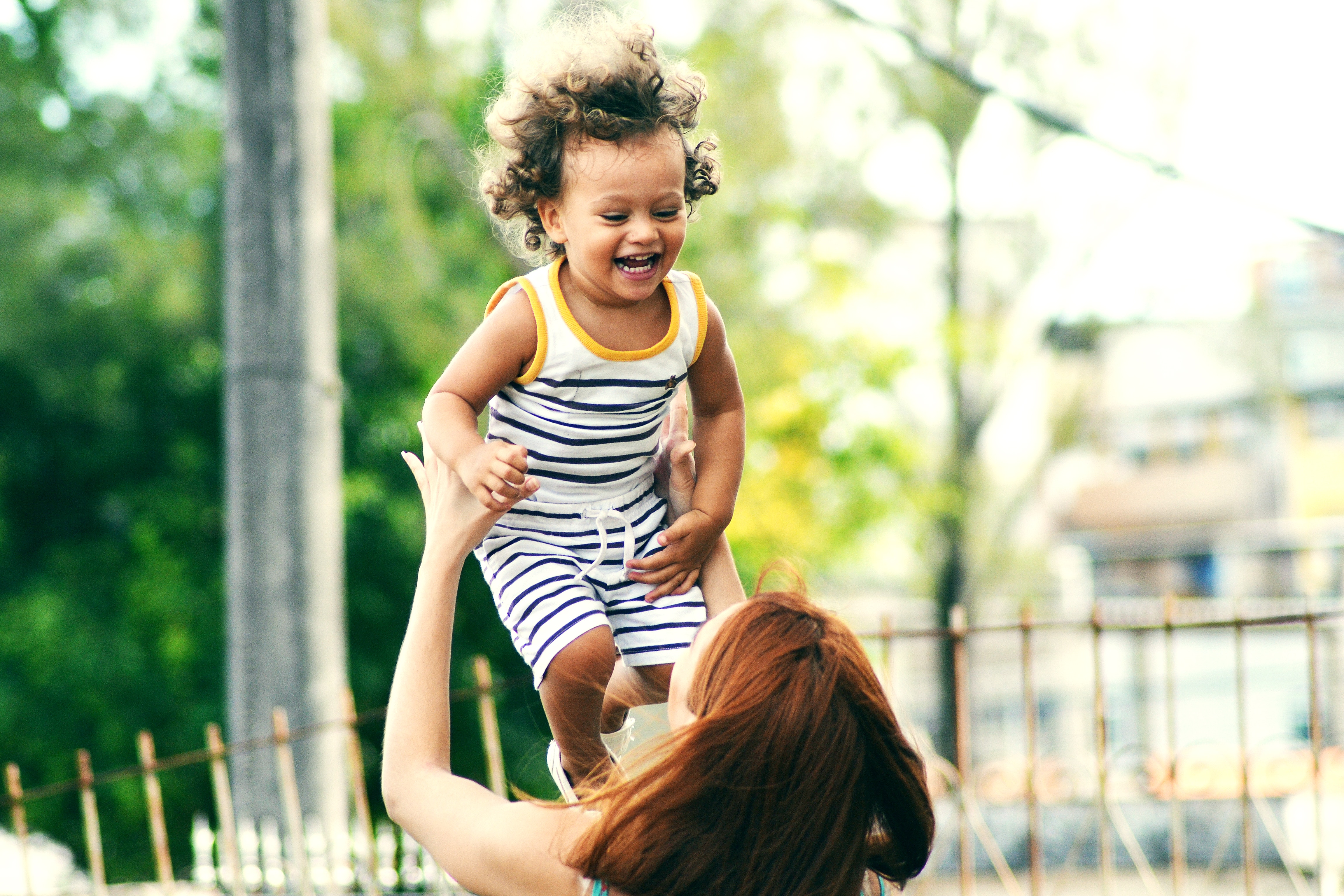
Exercise makes you happy, and there’s science to prove it. Beyond the obvious benefits of improved physique; increased activity releases hormones like endorphins, testerone, serotonin, and dopamine into the bloodstream. These hormones act as natural painkillers, increase metabolism, improve mood and sleep patterns, and hit the pleasure centers in the brain that motivate us to turn good intentions into good habits.
So why isn’t everyone exercising all the time? The reasons are infinite. You don’t have the equipment, you’re not wearing the right shoes, there’s not enough time, there’s too many distractions, you have a date, you have a meeting, you washed your hair that morning, you need to eat, you ate too much — all of these things are constantly working against our best intentions for our health and happiness.
Add a pregnancy, a newborn, a family to this list and you’re often sunk before you’ve even started. How could you possibly fit one more thing into a day that is already crowded with responsibilities — how could you ask your burdened body to do one more thing for you, to push itself one inch further? How can you give time to yourself when there are little people demanding your undivided attention?
Exercise for Happiness, Not Weight Loss
Thinking of physical exercise primarily as a weight loss tool is the first mental block to overcome. We often give up on exercise because we don’t see external changes in our physique — we get discouraged because we feel like it isn’t “working.” But every person’s body responds differently to exercise, and holding ourselves to some physical standard that the media feeds us — one that may not even be possible for our body — is the surest way to fail in pursuing an active life. What we need to focus on are the benefits that exercise provides for our mental health: in many cases, equivalent to the benefits of therapy or counseling.
Change Your Expectations
As any mother can tell you, pregnancy and motherhood will defy any and all of your expectations — the age you conceive, the way you deliver, the home and family that you bring a child into — all of these things can change in an instant, and the key is to learn how to adapt. The same goes for exercising. Try to disassociate the term “exercise” from its typical companions of gym, track, weights, and athletic wear; and instead start thinking of it as “activity.” Playing a game of tag with your kids, taking the stairs instead of the elevator at work, doing calf-raises while you brush your teeth or while taking a shower, taking extra laps around the perimeter of the grocery store with a shopping cart, doing squats with your baby in your arms — these are all activities that can be incorporated into your daily life without much extra commitment. Don’t let your desire to fit a certain expectation for exercise be an obstacle to getting yourself moving.
Find An Accountability Partner
Self-discipline is one of the hardest parts of adulthood. When no one is over our shoulder making sure that we accomplish a thing, the temptation can be to let difficult tasks slide by us — particularly when the consequences seem non-existent. But while there might not be anyone rapping our knuckles if we don’t exercise, the consequences of neglecting activity are significant for mental health. Give yourself some kind of accountability for activity: keep a journal where you record your daily physical activity; establish a goal at the beginning of the week for number of days to go for a run or take a swim; walk to the park with your kids or a coffee shop with a friend at a set time each week. A mother never has leftover time in the day, so it is important to plan ahead and be intentional: having a particular time of day or days of the week set aside for physical activity can make a difference in accomplishing your goal.
Embrace Difference
Maybe you already have an established exercise routine before motherhood — you wake up early every morning and go for a run, you hit the gym after work, you go rock climbing on the weekends. Pregnancy and motherhood can still throw you for a loop. As your body changes, be kind to it. Recognize that it may not be able to do the same kinds of things that it used to do, and be assured that there are lots of alternatives to the exercises that may be off limits during pregnancy — alternatives like swimming and pilates, which can still give you a great workout but are lower impact and kinder on your body.
Above all, know that fitness looks different for every time of life and every person, and don’t get caught up in arbitrary standards of the media or even the experiences of friends and relatives. Some women have debilitating morning sickness during pregnancy, others have to be on bed rest, sometimes a tear or C-section during delivery can put you out for a few months after having a baby. Always talk to your doctor about what is right for you and your health, and prioritize that.

